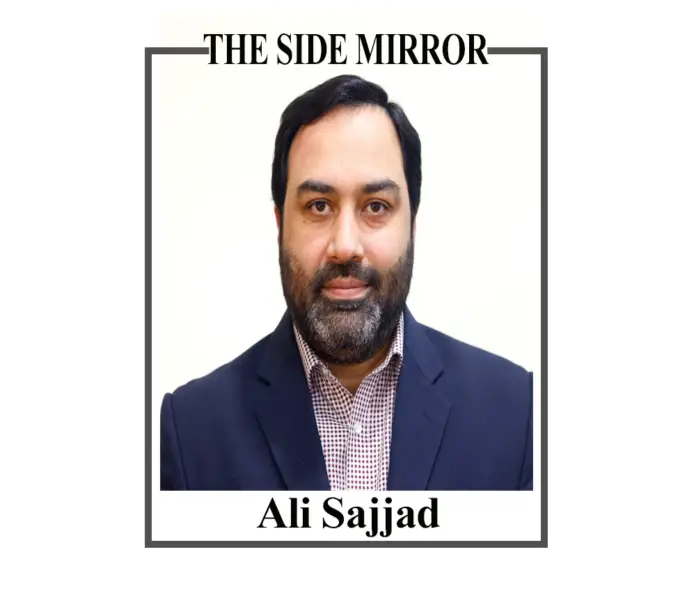I had to rush to England for some family engagements. Hopefully, I will return to office before Eid. Here in my second home, wherever I go and meet Pakistanis, they are concerned about the economic situation of the country.
Economy is not my cup of tea. People, however, expect me to reveal something that is really inside.
I tell them that it is true that the government is facing serious economic issues and the need for a fundamental policy shift has never been more pressing. There is, however, no need to be disappointed as Prime Minister Muhammad Shehbaz Sharif and his cabinet members have acknowledged the gravity of these challenges, having witnessed them firsthand in various capacities. The first step towards solving a problem starts with admitting a problem.
However, addressing these challenges demands concerted efforts from all stakeholders and the formulation of comprehensive policies to steer the country towards economic stability.
Encouragingly, Prime Minister Shehbaz Sharif has initiated steps to address these concerns. I watched on TV a meeting between Saudi Arabia’s Minister of Defense Prince Khalid bin Salman bin Abdulaziz and Prime Minister Shehbaz Sharif.
Pakistan always looks towards Saudi Arabia in the need of hours. In recent times, Saudi Arabia has indicated that it will not support any sinking ship, including Egypt and Pakistan. This time, if Saudi Arabia helps Pakistan, this is going to be the last time. In the recent meeting between the Saudi guest and the prime minister, discussions centered on bilateral issues, regional peace, security, and the potential for increased collaboration in defense and security sectors. Prime Minister Shehbaz Sharif underscored the deep-rooted fraternal ties between Pakistan and Saudi Arabia, highlighting the growing strength of their relationship over time. He also emphasized Pakistan’s vast investment opportunities in agriculture, minerals, and information technology sectors, signaling a proactive approach to attract foreign investment and bolster economic growth.
In a bid to alleviate economic strains, Pakistan has turned to China’s capital market for support. The decision stems from the expectation of borrowing at lower interest rates compared to other markets, particularly Europe. The announcement of Panda Bonds issuance worth $300 million for the Chinese market reflects this strategy. However, the complex issuance process and market regulations pose significant challenges for the government.
The recent successful completion of the Standby Arrangement with the International Monetary Fund (IMF) and ongoing negotiations for a new program offer promising prospects for Pakistan. Positive indicators, such as a current account surplus of $128 million and a reduction in the expected current account deficit to $2 billion, bolster confidence in Pakistan’s economic outlook. The foreign financing gap has narrowed to $11 billion, down from an earlier estimate of $17 billion. Reports of Pakistan’s agreement with the IMF have strengthened sovereign bonds and positioned Pakistan favorably to access the Chinese market for financing. Analysts suggest that Panda Bonds offer competitive interest rates compared to Eurobonds, presenting an opportune moment for Pakistan to tap into Chinese capital.
Further buoying Pakistan’s economic prospects, the World Bank has approved financing of $149.7 million for two critical projects. The Digital Economy Enhancement Project, receiving $78 million, aims to enhance digital public service delivery for citizens and firms. The Sindh Barrages Improvement Project, with $71.7 million in financing, seeks to improve flood prevention and safety management of Sindh’s barrages.
Amidst favorable signals from the global arena, domestic stakeholders – all political parties – should unite on a common platform. Prime Minister Shehbaz Sharif’s proposal for an economic pact warrants serious consideration, necessitating bipartisan leadership to prioritize the country’s economic revival over political differences. Only through concerted efforts to achieve economic stability can political parties truly lead the nation towards prosperity and regain the trust of the people.
Look, I did not know much economy, but I outlined the recent developments to establish that the government is taking actions and collaborative efforts to overcome economic challenges and chart a path towards sustainable growth and development.







